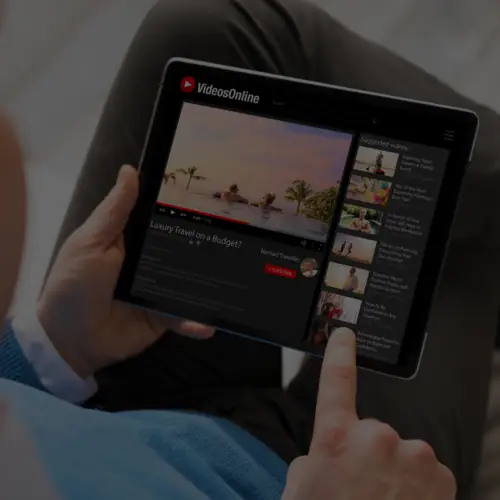15 Nov Little Bird – The Latest Tool to Find Industry Influencers [Review]
 In the past, I’ve seen businesses pay thousands to agencies to compile “influencer lists” for blogger and social media influencer outreach programs. Fortunately, there is a growing number of alternatives in the form of tools like Little Bird, which quickly analyze millions of data points to come up with a comprehensive list of topic influencers and experts – and then makes it easy for you to reach out to them. It’s important to note; however, that the emphasis is on Twitter accounts – though the tool also lists influential blogs and has plans to extend to LinkedIn and Google+ in the near future.
In the past, I’ve seen businesses pay thousands to agencies to compile “influencer lists” for blogger and social media influencer outreach programs. Fortunately, there is a growing number of alternatives in the form of tools like Little Bird, which quickly analyze millions of data points to come up with a comprehensive list of topic influencers and experts – and then makes it easy for you to reach out to them. It’s important to note; however, that the emphasis is on Twitter accounts – though the tool also lists influential blogs and has plans to extend to LinkedIn and Google+ in the near future.
At this point you can trial Little Bird through their private beta (you have to apply), but reports indicate there will be “freemium” subscriptions available (with limited features) as well as paid subscriptions for about $50/month for individuals, $250 for smaller companies and $1,000 or more for medium-large businesses.
Features
One of the best things about Little Bird is that it’s very clean and simple to use. Navigating around the site is fairly intuitive, although I would have appreciated some roll-over explanations as to what exactly some of their terms mean and features entail – for example within the “emerging” category, what do they classify as a “New Account?” On the same point, they have a “Listeners” category, and it isn’t 100% clear to me what this group entails. The assumption I’ve come up with is that they are the accounts “following” the most “insiders,” but there is no explanation provided to confirm.
So what features does Little Bird include?
Create Reports
The first step to gathering intel using Little Bird is to create a “Report” – it’s a fairly simple process. Once you click “Create Report,” you are able to specify in what topic you’d like to find experts. Then, you can either leave it at that or choose to search in a specific place. For the example below, I decided to search on the topic of cats within New York. It’s a pretty random association, but I figured that there were cat lovers in every city. So for the purposes of this investigation, let’s just pretend I work for a cat food company based in NYC.
Before your report is created, Little Bird prompts you to check the sample list of experts and even provide some suggestions of your own. If you have some specific Twitter accounts in mind, you can suggest that they also be included in the report. If not, just accept their recommendations and wait for a few minutes while the program compiles your data. The service will send you an email when it’s finished.


Topic Experts
Once you click into your account you are given a list of hundreds of the top experts within your topic area and the location you specified (if any). In the case of cats in NY, I have been given a list of the top 223 experts. By rolling over the Twitter accounts, you are able to see their key stats (i.e. followers, following, tweets) as well as actually follow them from within the site by clicking the “follow button.” Each expert also comes with an “Insider score,” which is how Little Bird determines their influence. Essentially it’s the number of “insiders” (or people within that specialist field) who follow that account. In this way, they claim their list of experts are “peer-validated.” It may not be foolproof, but it makes some sense.
When looking at the top accounts, it seems to be recommending mainly news accounts. You can choose to show only “people,” which will weed out the businesses, groups and associations from the results. Doing this leaves me with just three people – none of whom are very obviously influential in the area of cats. In this case, the tool has not been very useful in determining key influencers in the cats category. Just as I was looking over the results, I receive an email (completely unprompted) from the CEO of Little Bird himself, letting me know that he has recognized the results are not great and he is trying to run some alternative queries such as “cat lovers” or “cat care.” Evidently the tool itself may need a little work in some areas, but the customer service is definitely not lacking!

Looking at the topic “mommy bloggers,” the results are much more appropriate. The conclusion I can make from this is that the tool is still experiencing a few growing pains – like any site in beta testing – but the good news is that they are obviously working hard to ensure relevant results moving forward for all customers.

The service also segments accounts by “Emerging,” “Listeners,” “Most Followers,” “Oldest Accounts” and “Most Active” categories. This way you can find the most appropriate people based on the strategy you’re looking to implement.
Hot News
By clicking on the “Hot News” option, you are served the 5 links most shared by the experts in your topic over the past week. Based on this definition, it’s important to understand it’s not necessarily links about your topic, but just the most shared by the experts within your topic. So, for example, within the mommy blogger field, a link about the election results may show up because at that point in time those experts were sharing this the most (not that it did in this case, but just as an example).

Most Shared Content
This feature is a little confusing in terms of the difference with “Hot News,” but from what I can gather (which again, could be better clarified the site), it provides a report detailing what the topic experts have shared recently (their own posts rather than external links). So you are more likely to see actual Tweets in this list, rather than the news links under “Hot News.”

Comparison Tool
The “compare” function that Little Bird includes is fairly interesting. It enables you to input a Twitter handle to compare that account against the experts within your category. It then shows you how many of the topic experts follow that account, and how many topic experts the account follows. I thought this was a handy (and interesting) little feature to include. It’s also something I haven’t seen before.
Hot Blogs
This one is pretty self-explanatory – click on the “Blogs” feature and you are provided with the list of most influential blogs on the topic. The top blogs are determined by the number of inbound links. The list displays the name of the blog, the URL and the three most recent posts. Also pretty handy, but obviously more detailed information would be even better (albeit much harder to compile) – like average comment-count on posts, unique visitors, etc.
Export
Another great feature is the ability to export the report findings for further manipulation and analysis. At this stage it’s only available to subscription customers. It’s definitely a handy little feature to have.
Edit Insiders
The last functionality included in the Little Bird dropdown menu is the ability to edit your report, which essentially means you’re able to remove individual insiders from the list. That way, you can manually go through and ensure relevancy.
Measuring Up To Competition
How does Little Bird differ to other tools and services out in market? Perhaps the best known in the field are Klout, Kred and PeerIndex, which rate people in terms of their general digital influence, as well as attributing topics of expertise. The issues with their methods have been well documented, as they rely heavily on quantity rather than quality. If you post frequently, you’re likely to get higher rankings than those who don’t post as frequently (though you may still get high engagement), and as long as you mention a topic frequently, you’ll be considered an “expert.”
For this reason, the tool is a refreshing option for those looking to identify serious influencers within an industry and see what they are talking about on a daily basis.
Concluding Thoughts
Clearly there are some improvements that need to be made to the Little Bird service, but it’s refreshing to use a tool that doesn’t rely on quantity (or who is talking the most about a topic), but focuses instead on the actual influence that person has. It relies on the theory that the most influential people are those followed by the highest number of other influential voices within that topic – which while perhaps not foolproof, is definitely a better way of measuring influence within a specific subject than pure number of followers or number of topic mentions by an account.
If you’re running a social influencer outreach program (or thinking of doing so), Little Bird is well worth checking out.






